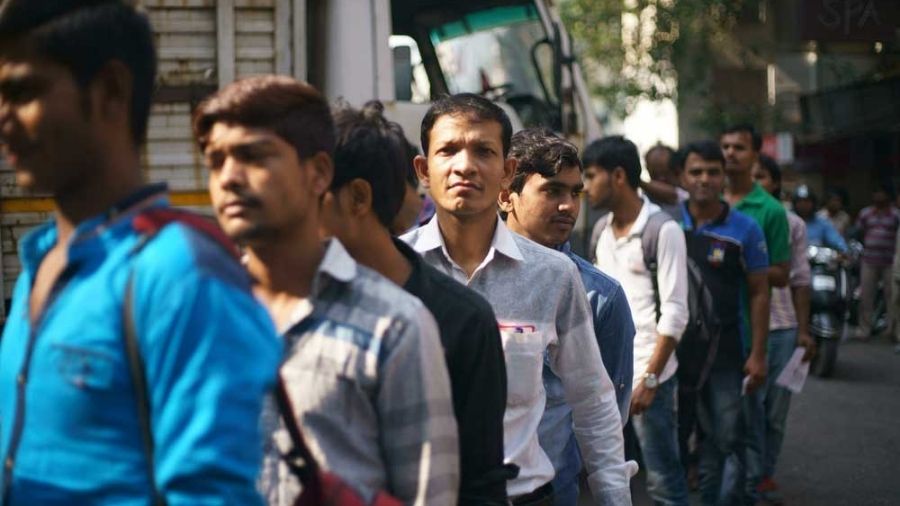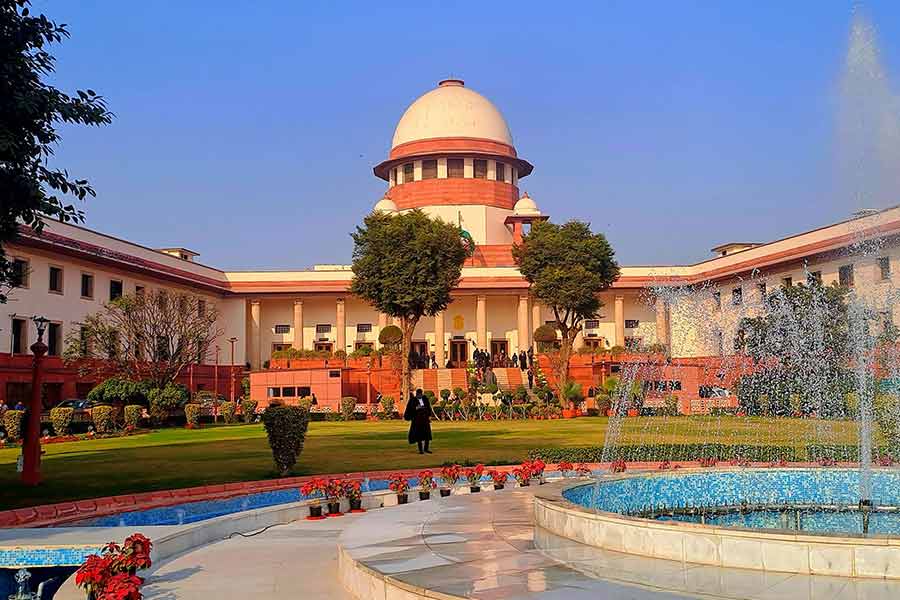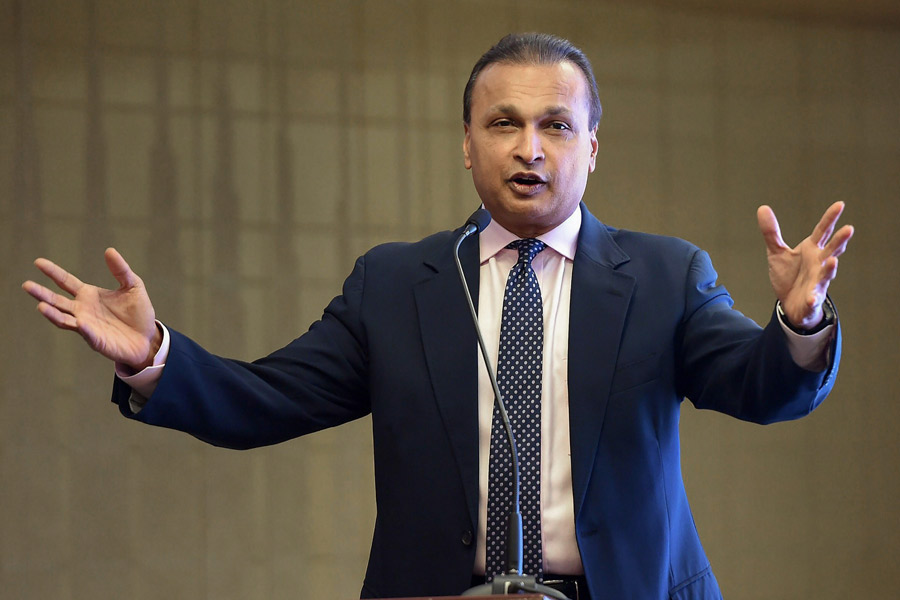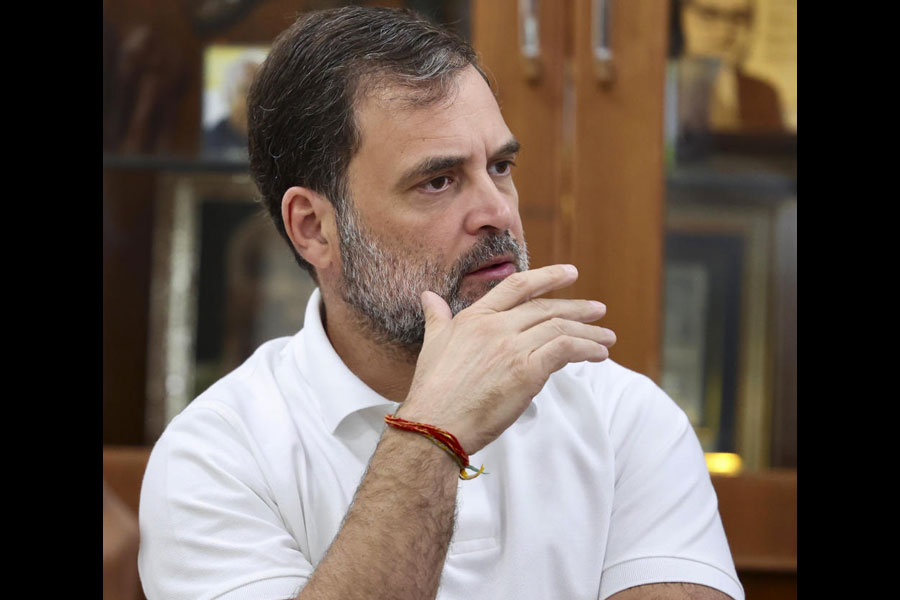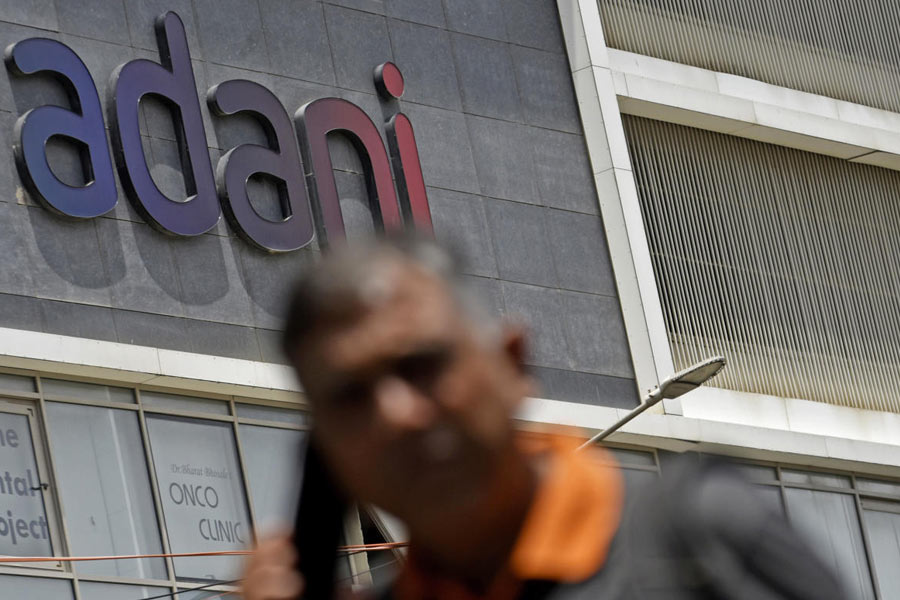Unemployment rate or proportion of persons aged 15 years and above who could not find jobs has dipped to 4.1 per cent in July 2021-June 2022 from 4.2 per cent a year ago amid staggering impact of Covid, showed a government survey.
The unemployment rate was 4.8 per cent in 2019-20 (July to June), as per a statement on the Periodic Labour Force Survey (PLFS) issued by the Ministry of Statistics and Programme Implementation (MOSPI) on Friday.
The 2021-22 refers to the period July 2021–June 2022 and likewise for 2020-21 and 2019-20.
According to the PLFS annual report (July 2021 to June 2022), the joblessness or unemployment rate (UR) for persons aged 15 years and above came down to 4.1 per cent from 4.2 per cent a year ago (2020-21).
Similarly, the UR among males has also come down to 4.4 per cent in 2021-22 from 4.5 in 2020-21. It was five per cent in 2019-20.
The same trend of decline in the UR was found among females as it dipped to 3.3 per cent in 2021-22 from 3.5 per cent in 2020-21. It was 4.2 per cent in 2019-20.
Worker Population Ratio (WPR) has also improved. The WPR is defined as the percentage of employed persons in the population.
The WPR has increased to 52.9 per cent in 2021-22 from 52.6 in 2020-21. It was 50.9 per cent in 2019-20.
The WPR in females also improved to 31.7 per cent in 2021-22 from 31.4 per cent in 2020-21. The WPR among males rose to 73.8 per cent in 2021-22 from 73.5 per cent in 2020-21.
Labour Force Participation Rate (LFPR) has also increased. The LFPR is defined as the percentage of persons in the labour force (i.e. working or seeking or available for work) in the population.
The LFPR has risen to 55.2 per cent in 2021-22 from 54.9 per cent in 2020-21. It has also increased among males to 77.2 per cent in 2021-22 from 77 per cent in 2020-21. It rose in females to 32.8 per cent in 2021-22 from 32.5 per cent in 2020-21.
The MOSPI stated that now the fifth annual report is being brought out by NSSO on the basis of Periodic Labour Force Survey conducted during July 2021-June 2022.
The ministry explained that due to the 2nd wave of COVID-19 pandemic related restrictions, the field work of PLFS was suspended for the second time in April 2021 in most parts of the country.
The field work was gradually resumed in the first week of June 2021. This therefore had some spill-over effect in completion of the field work in respect of the allotted samples for different quarters of the survey period July 2021 – June 2022 which is covered in the present Annual Report, it stated.
The PFLS is conducted to estimate the key employment and unemployment indicators (viz. Worker Population Ratio, Labour Force Participation Rate, Unemployment Rate) in the short time interval of three months for the urban areas only in the 'Current Weekly Status' (CWS).
It is conducted to estimate employment and unemployment indicators in both 'Usual Status' (ps+ss) and CWS in both rural and urban areas annually.
The sample size for survey during July 2021 - June 2022 in rural and urban areas for the annual report was 12,800 FSUs (7,024 villages and 5,776 urban blocks).
The number of households surveyed was 1,01,782 (55,895 in rural areas and 45,887 in urban areas) and the number of persons surveyed was 4,28,525 (2,49,175 in rural areas and 1,79,350 in urban areas).
Among the persons surveyed, the total number of persons of age 15 years and above was 3,27,081 (1,85,551 in rural areas and 1,41,530 in urban areas).
Except for the headline, this story has not been edited by The Telegraph Online staff and has been published from a syndicated feed.

